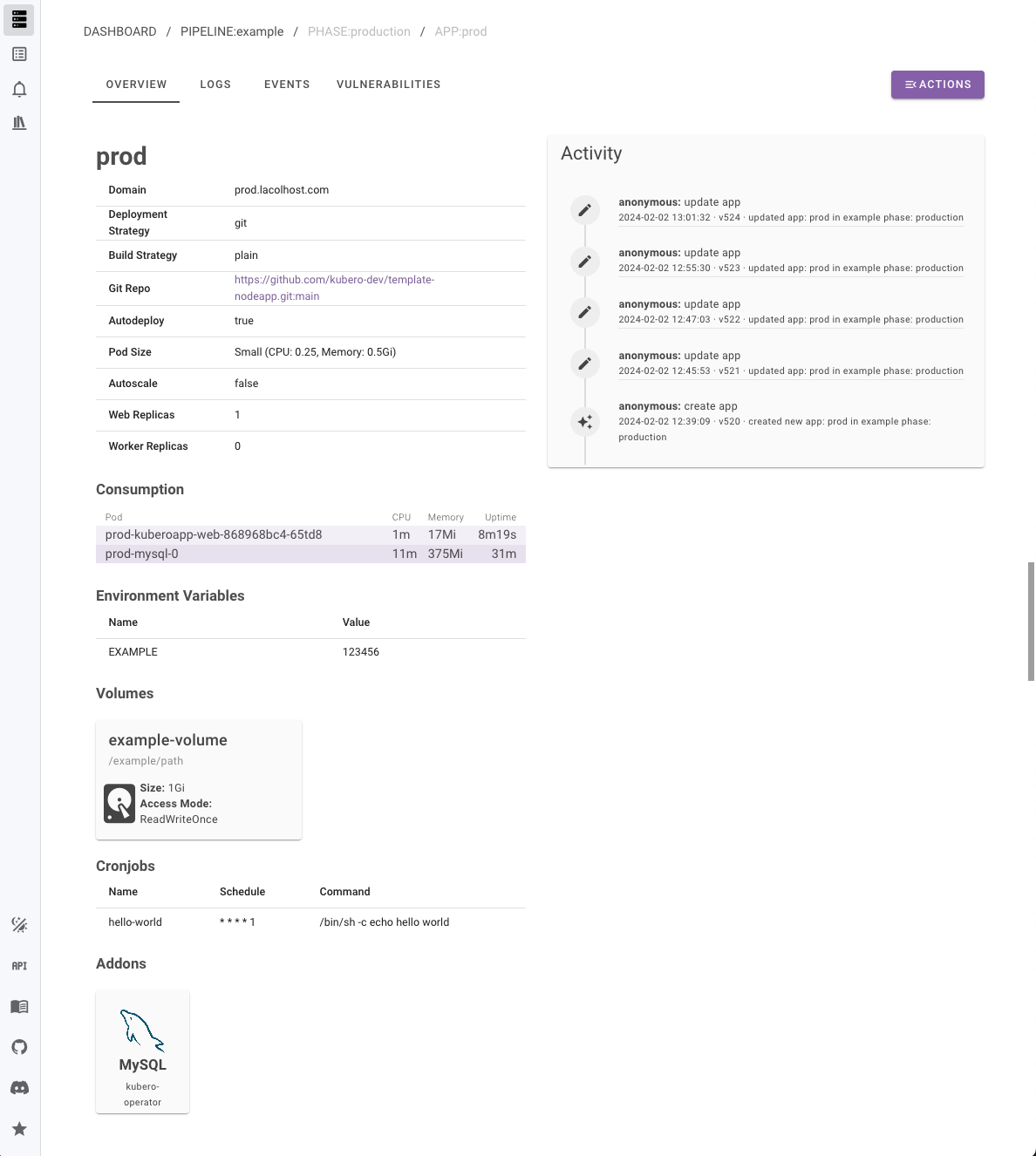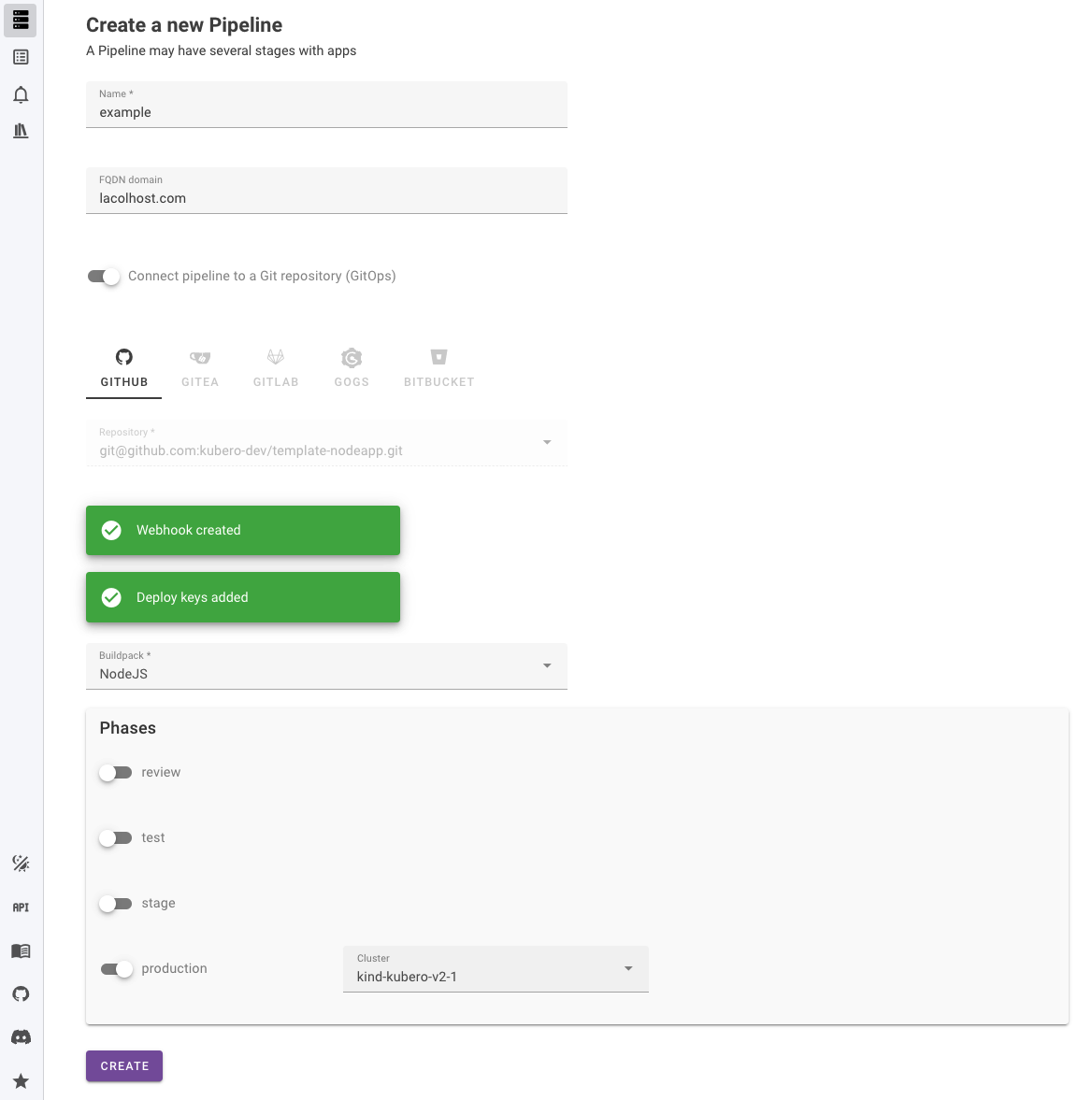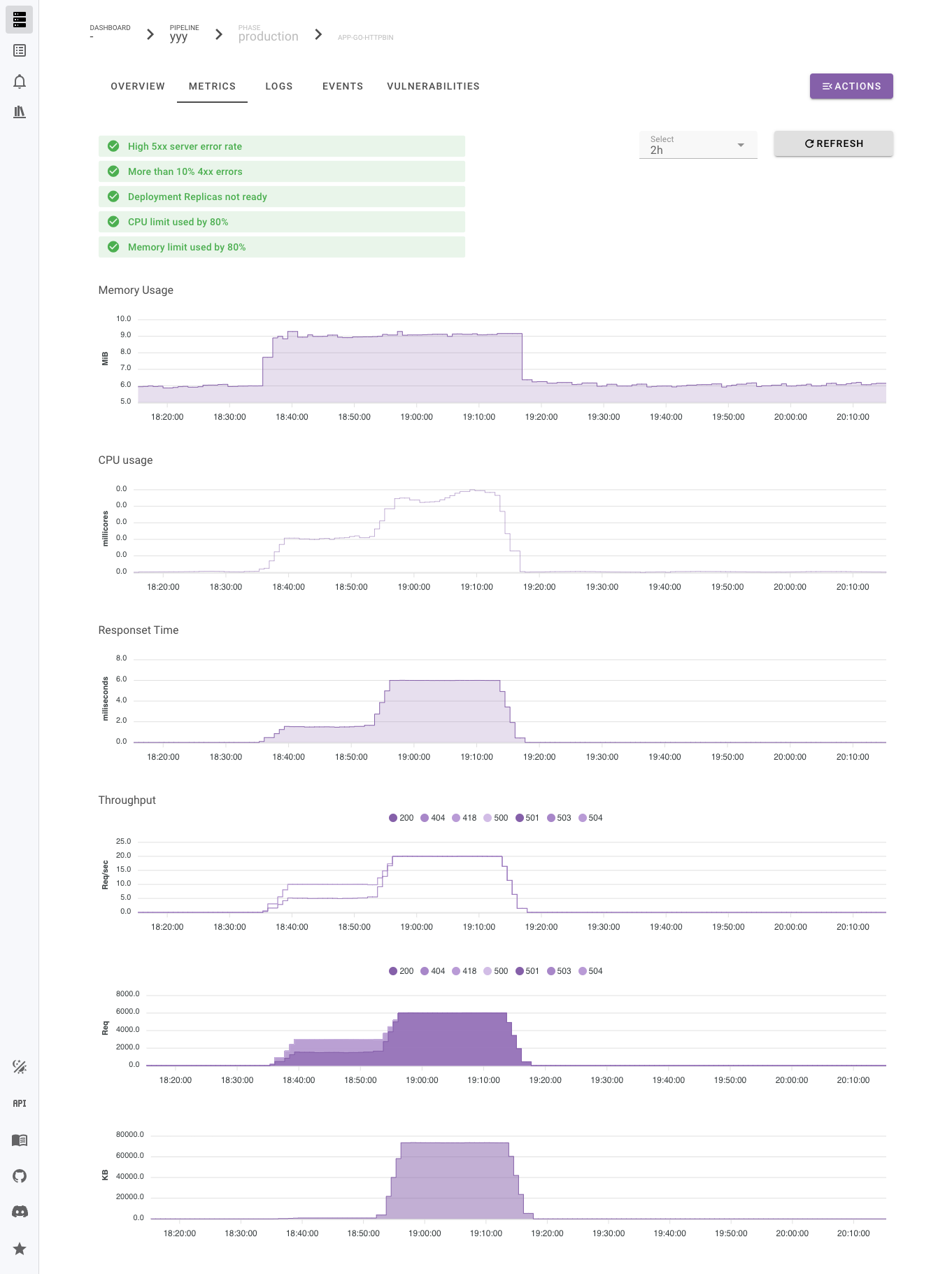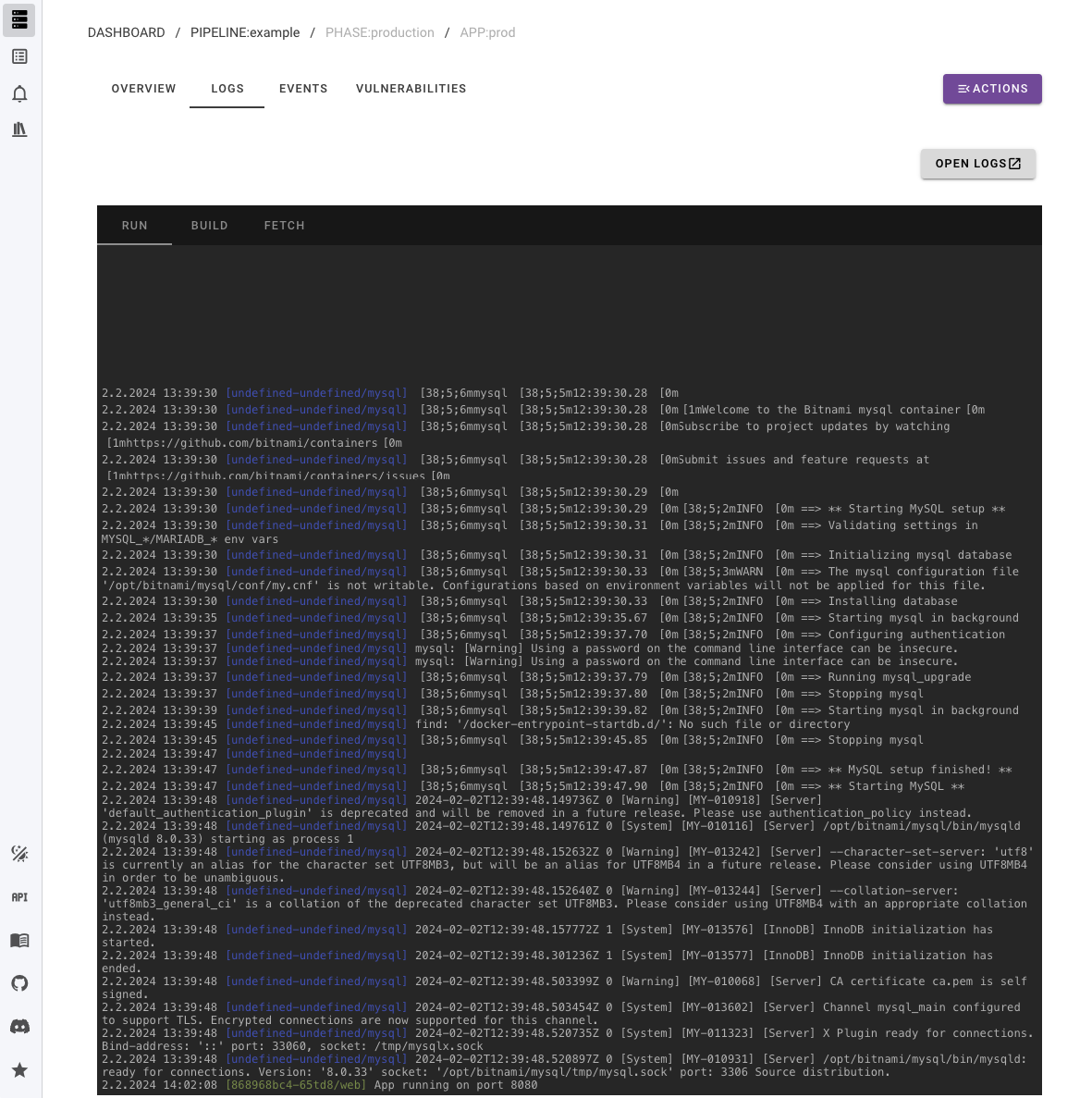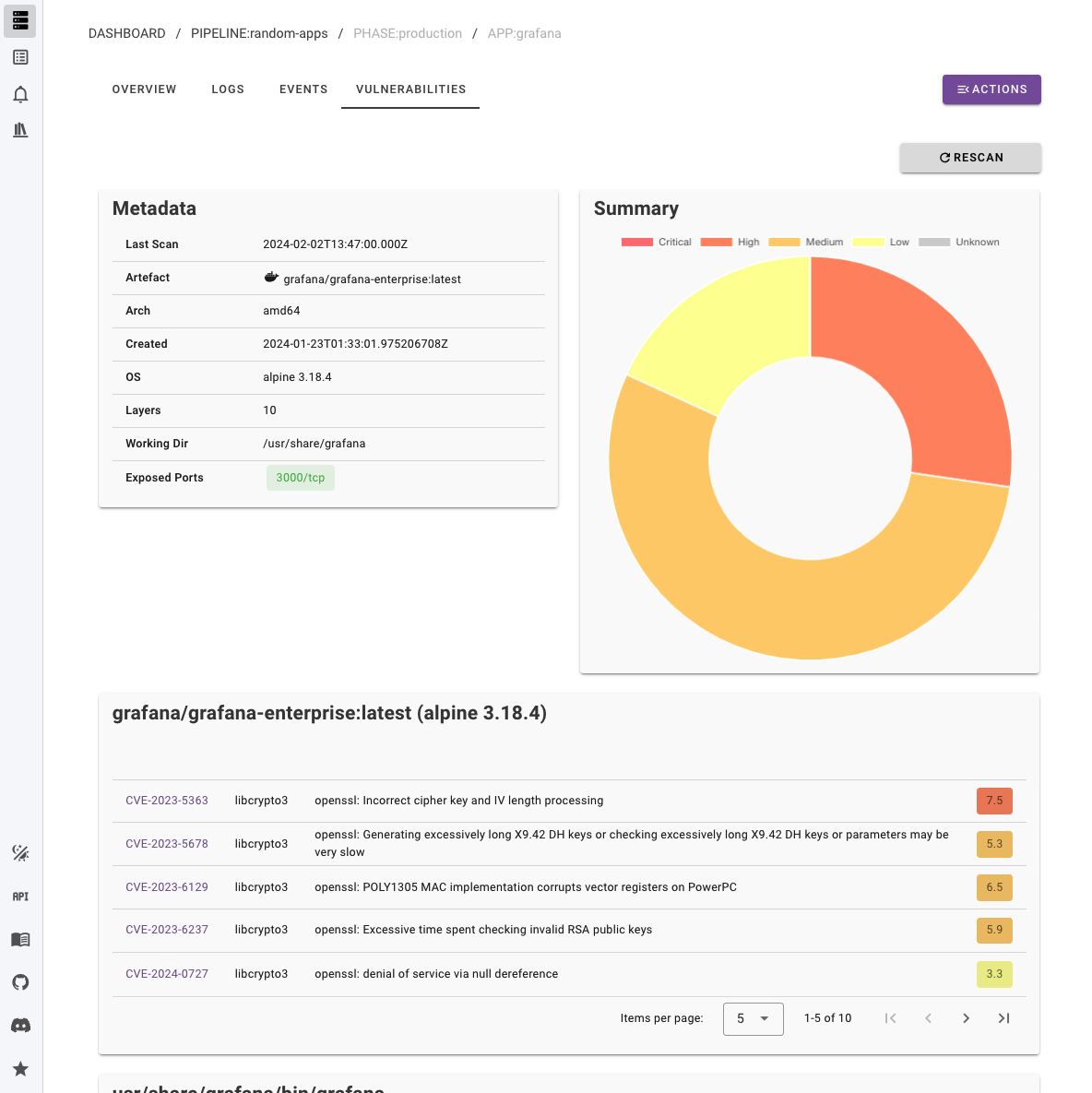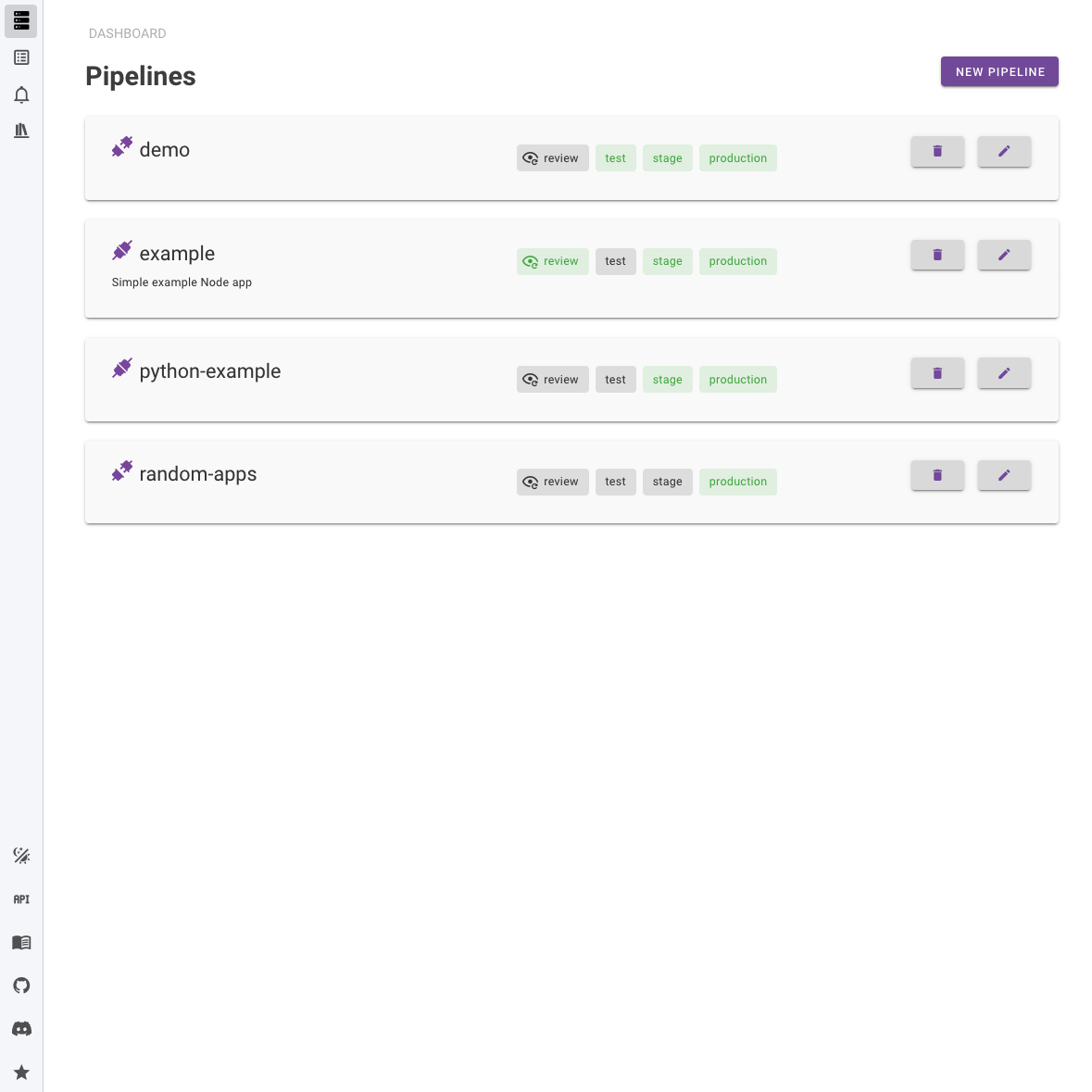Heroku alternative for Kubernetes
Deploy 12-Factor Apps on Kubernetes Easily - Simple, Scalable, Cloud-Native.
Features
Kubero is the most complete PaaS solution with a wide range of Enterprise-grade features.
Open-Source
All components are open-source and self-hosted. No hidden services or paid extra content to unlock!
Autoscale
Automatically scales applications horizontally to meet varying demands.
High Availability
Ensures applications and add-ons are deployed in a highly available manner, minimizing downtime during deployments and maintenance.
160+ Templates
Use templates for one-click-deplyoments of well known tools like Wordpress or Kuma.
Add-ons
Simple installation for addons like MySQL, Redis-Cluster, PostgreSQL, Kafka, CouchDB, Elasticsearch, MongoDB and more
Metrics and Monitoring
Predefined application metrics and monitoring at a glance for the developer.
Cronjobs
Allows scheduling of periodic tasks to run at fixed times, dates, or intervals.
Web Console
Enables direct access to pods and containers from the browser through an integrated web console.
Push to Deploy
Integrates with Git repositories to build and deploy applications automatically upon code changes. (GitOps).
Buildpacks
Use a Dockerfile, buildpacks.io, nixpacks or runpacks to build your application without writing a Dockerfile
Pull Request Apps
Deploy a new app instance automaticly when a pull request is opened.
Vulnerability Scans
Run scans with trivy to detect Vulnerabilities in your running images and repositories.
Basic Authentication
Protect your applications with basic authentication and manage users and passwords.
SSL Certs
Issue SSL certificates for your applications with cert-manager and Let's Encrypt.
SSO Authentication
Offers built-in authentication methods, including GitHub and OAuth2.
Sleeping Containers
Pods are turned off when not in use to save resources. When they are needed again, they can be started within milliseconds.
CLI
Use the CLI to create a Kubernetes cluster, to install Kubero and manage your applications and pipelines
API
Use the API to extend your own applications with Kubero's features.
IaC
Deploy Kubero's Pipelines and Applications with your own CI/CD pipeline. (ArgoCD, Github Actions, ...)
Notifications
Configure customizable notifications for incidents on installed applications.
